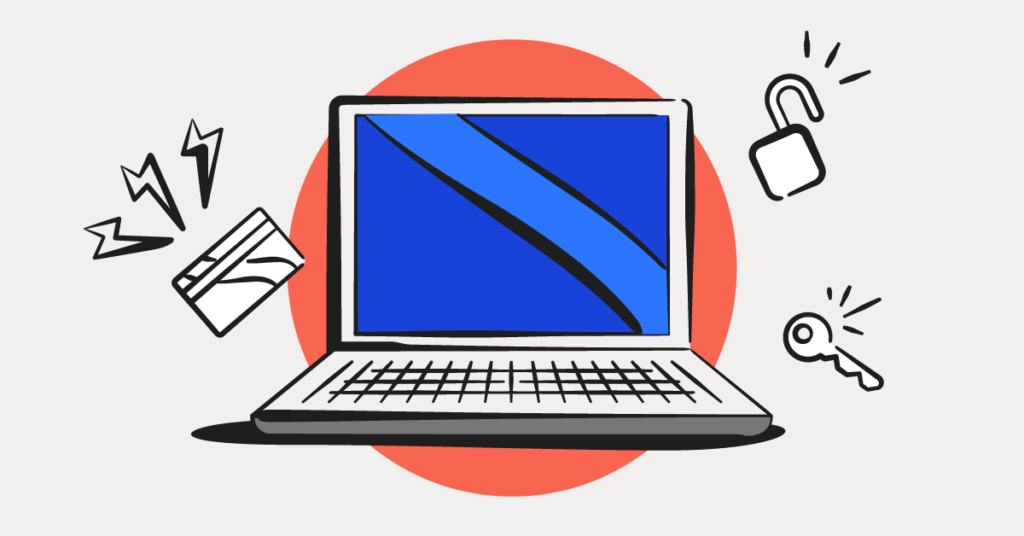
**Note: This is a guest blog post from our friends at EarthLink!**
You already know that keeping your kids safe online can feel like a full-time job. From teaching them what is and isn’t okay to post to staying on top of the latest apps, the digital world is constantly changing. But did you know that what you do online can also impact the life of your children for years to come?
As a parent or guardian, you’re the one accessing your children’s bank accounts, social security information, medical records, and more. And as more of our confidential lives move onto the internet, it’s never been more important to ensure it stays secure.
But who would want access to a child’s information, especially before they have anything like a credit score or regular income? Unfortunately, personal information — and a blank slate — can go a long way on the dark web. Here's some helpful information about cyber protection software.
What’s the Dark Web?
The dark web is basically the seedy underbelly of the internet. At the top of the internet, you have indexed pages — think things like Google search results — which are easily accessible. Drill down further, and you’ll arrive at the deep web. The deep web has non-indexed pages, which require a login to view. This includes things like company intranets, online bank accounts, email inboxes, and more. If you go past the deep web, you’ll reach the dark web. It also has non-indexed pages (so you can’t find it through a quick search), but these typically involve illegal niches, like selling personal data.
When security breaches happen, the hackers typically go to the dark web to sell stolen personal information. Information like social security numbers and bank accounts are valuable, no matter who they belong to.
How Can the Dark Web Affect My Kids?
Most adults who have a credit card or bank account receive alerts if an unexpected charge comes up, which makes it easier to catch any security breaches and quickly cancel the charge.
But what happens when someone is using a child’s identity? Most kids don’t need their social security or banking information very often, so any breach could go undetected for quite some time. If a thief steals your child’s social security number, they can open credit card accounts, obtain driver’s licenses, buy property, and more, depending on how long it goes unchecked. It can make it difficult to open a legitimate account for your child down the road — or they could be saddled with a low credit score and debt that isn’t theirs.
Growing up is hard enough without all that added stress!
How Can I Protect My Kids from the Dark Web?
Like most things, the answer to this question depends a little bit on how old your children are, and what they’re doing online.
First and foremost, all adults should have a dark web monitoring service. When choosing a service, look for features like a password vault, a VPN, identity theft reimbursement, and specific steps to take if your information is found in a security breach. Once you’ve chosen your software, install a VPN on any device you’re accessing private information on, from your family’s shared computer to your smartphone. And be sure to include any accounts you have for your kids and to add more as they’re created.
Next, if your children are old enough to be posting on their own profiles, be sure to talk with them about safe practices. Remind them to never post their social security number, address, or account information (whether that’s a bank account number or an email username and password) online.
As they get older, you can help set them up for success by passing down the value of dark web monitoring services and real-time alerts for irregular charges or account logins. Part of being a responsible citizen now includes looking after your private information online. As our medical charts, paychecks, and more move online, this is only going to become more important.
Finally, don’t forget to apply these rules of thumb to yourself! If your children attend things like summer camps, be diligent about only providing confidential information when required. Just like you check your own accounts, be sure to stay alert for anything regarding your children’s accounts, including notices from the IRS that their social security number was claimed as a dependent on someone else’s tax return.
While nothing can fully prevent you from experiencing an online data breach, being aware of the risks and taking precautionary steps can go a long way towards preventing any information from being stolen — and managing the repercussions if it is.
Read more
Bark helps families manage and protect their children’s digital lives.




